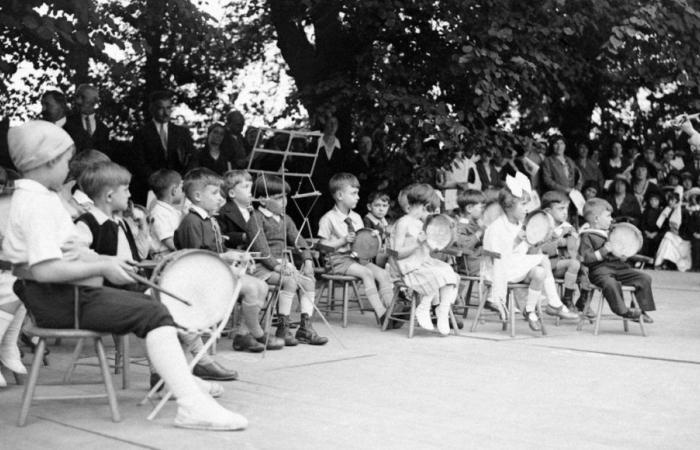For or against conservatoriesthis is the title of the text published by Raphaël Imbert, saxophonist, improviser, researcher, former director of the Pierre Barbizet Conservatory of Marseille and now general director of the National Higher Institute of Artistic Education Marseille Méditerranée, a public establishment which brings together the Conservatory Pierre Barbizet, Fine Arts and the Marseille Méditerranée Artistic Training Institute.
But then, is it really reasonable to ask the question of the usefulness of conservatories, when you direct one yourself? Yes, the musician answers us, because the title “is a bit of an underlying sentence, which we hear in many debates, questions or interrogations, from parents to cultural policies.” The idea of the essay is therefore based on a double observation: on the one hand, the outdated, strict and academic image which still sticks to the skin of conservatories, “where you have to start very early, follow a long course”on the other, a happy personal and artistic experience within the Pierre Barbizet Conservatory, the same structure that he directed from 2019 to 2023, and into which he entered rather late: “The Marseille Conservatory was able to welcome me, me who was a completely self-taught artist. I never took saxophone lessons in my life, I learned on my own, one day, because I I met a neighbor who played the saxophone. I was 15 years old and two years later, I joined this famous jazz class: the first, created in France on the initiative of Pierre Barbizet, in 1963.
Reconnect with collective musical practice
At the conservatory, Raphaël learned music theory, “what was the very meaning of this music”, but also and above all collective practice, improvisation. Hence the subtitle of the essay: Of the urgency to practice music. Because this is perhaps what we have lost, over the years, the author explains to us, the importance of playing, of creating opportunities to play, of forming musical groups, of coming together around the music, mixing the tastes and curiosities of each and everyone. “I found the challenge interesting, this idea that, ultimately, conservatories are more of an element of distancing from musical practice, which is very anchored in the public imagination, with good reasons.” For example, he tells us, the ancestral history of French institutions and conservatories, the mistrust towards these academic institutions, the homogenization of musical practices which could lead to “destroy or make a lot of popular and local practices invisible”. And conservatories have precisely a big role to play in the revaluation of collective musical practice, by first constituting “a remarkable tool for cultural reconnection with citizens”.
Conservatories serving cultural production
Raphaël Imbert reminds us: we benefit in France from a considerable number of national, regional, territorial, municipal and inter-municipal conservatories, a “extraordinary territorial network […] at a time when we are asking ourselves the question of the abandonment of public services, of the feeling of abandonment that peripheral areas can have. We have an extraordinary network and extraordinary civil servants, who defend and know how to transmit music.” It remains, perhaps, to rethink certain music learning practices, without excluding theoretical disciplines, but by placing the pleasure of playing at the center of teaching. For Raphaël Imbert, it is about “return to methods of practice and improvisation” by reconnecting the conservatories “to the transmission of orality”and by handing over the conservatories “at the heart of cultural production.”
For or against conservatories, On the urgency of practicing music – Editions Seuil Libelle (2023) by Raphaël Imbert






